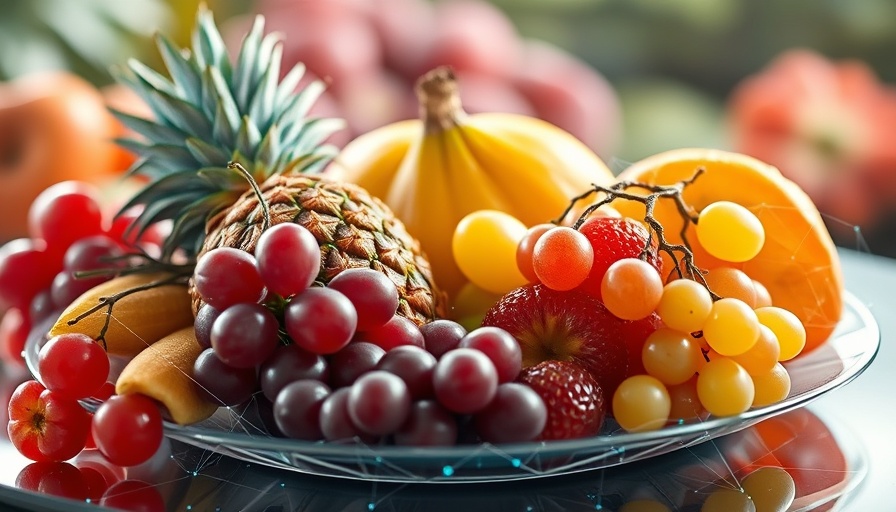
Shaping a Sustainable Future for Agriculture
As we stand on the brink of significant agricultural transformation, the necessity to rethink our current food systems has never been more pressing. The methods of today, heavily reliant on synthetic inputs and intensive monocultures, are not just degrading our environment but are also contributing to a loss of biodiversity and exacerbating climate change. With the stakes this high, the global agricultural community is at a crossroads—facing a choice between continuing down a harmful path versus shifting towards more sustainable, innovative practices.
The Rise of Technological Solutions
Many experts in the field agree that technology will play a crucial role in agriculture's future. Projects like the “New Vision for Agriculture” backed by the World Economic Forum aim to modernize food production across 21 countries. This initiative emphasizes creating a sustainable agricultural system by integrating advancements in technology—a potential industrial revolution that combines the physical, biological, and digital realms.
Imagine a future where precision agriculture uses sophisticated sensors and robots to optimize water usage and reduce pesticide application significantly. Agricultural robots might carry out tasks like sowing, harvesting, and pest control, fundamentally altering how farmers operate. While this might increase efficiency, it raises concerns about job displacement and the environmental implications of replacing intricate ecosystems with machines.
A Potential Downfall?
The mechanization of farming could lead to a concentration of power within large corporations, potentially creating monopolies that dominate the agricultural landscape. This “financialization” of food systems—as seen during the 2008 financial crisis—presents a clear risk: prioritizing profits over ecological balance could result in agri-businesses dictating food prices and availability, threatening small-scale farmers and food security worldwide.
Agroecology: A Viable Alternative
Fortunately, there's a growing movement towards agroecology, an approach that marries traditional farming practices with modern ecological principles. Agroecology focuses on nurturing the environment, employing techniques like intercropping, crop rotation, and organic farming to enrich soil health and bolster biodiversity. This system not only fulfills nutritional needs but also fosters resilience against pests and climate variability.
By prioritizing these eco-friendly methods, communities can enjoy local food security while also enhancing the planet's health. Community gardens and urban farming initiatives exemplify how individuals can engage in sustainable agriculture right in their backyards, reclaiming agency over their food systems.
The Urban Agriculture Revolution
Urban agriculture, encompassing practices like vertical farming, hydroponics, and rooftop gardens, offers a productive way to utilize space while contributing to sustainability. With more individuals living in urban areas, transforming these spaces into gardens helps reduce our carbon footprint by cutting down on food miles. It’s empowering for city dwellers to grow their own food, engage in community collaborations, and enhance urban biodiversity.
Tools and Techniques for Future Farmers
Whether you are an aspiring home gardener or an experienced grower, understanding the sustainable practices of today is essential for a thriving future in agriculture. Start small by exploring urban farming initiatives, trying your hand at rooftop gardens, or supporting local community gardens. As you cultivate your space, consider incorporating organic gardening practices, embracing permaculture principles, or creating a hydroponic system for year-round growth.
Inspiring Change Through Education
Education on sustainable practices is vital for inspiring the next generation of growers. As more people learn about the importance of ecological farming methods, they can become advocates for change and push for policy reforms that support sustainability. The cultivation of food is not just about production; it’s about fostering a culture that values health, community, and environmental stewardship.
Conclusion: Your Role in the Future of Food
The future of food is in our hands, whether through personal gardening efforts or larger community initiatives. The shift towards sustainable agriculture must reflect in our choices, reinforcing our commitment to preserving the earth for future generations. Now is the time to get involved; explore local resources, participate in community efforts, and advocate for policies that protect our food systems. Your actions can contribute to a resilient and thriving agricultural landscape.
 Add Row
Add Row  Add
Add 




 Add Row
Add Row  Add
Add 

Write A Comment